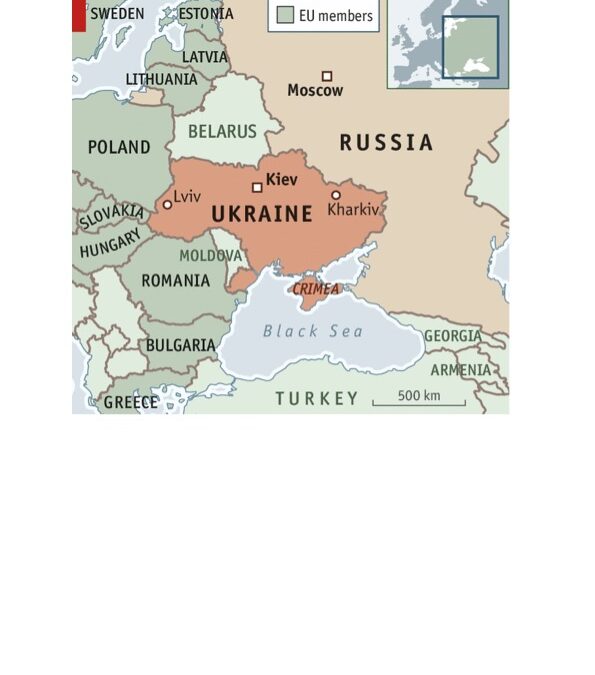How the right-wing populist Orban weakened the Hungarian economy.
While the EU debates the influx of right-wing parties, economists look to Hungary. There they show what consequences a right-wing populist government can have.
If Viktor Orban has his way, the balance of power in Europe will look different in 2030 than it does today. “We Central Europeans will become net contributors to the EU by then,” the Hungarian prime minister said a year ago at the traditional summer university of the Hungarian ruling party Fidesz in the small Romanian town of Baile Tusnad.
Currently, however, it does not look as if the provocateur will be able to achieve this goal. Ideologically, Orban has hero status in right-wing conservative circles, but economically no European country is doing as badly as Hungary.
According to central bank figures, in February 2023 Hungary had the highest inflation rate of all EU countries – 25.8 per cent. Today it is around 19.9 per cent. Inflation affects Hungarians’ standard of living. On average, they suffered a real wage loss of 15.6 per cent between the first quarter of 2022 and the first quarter of 2023, the highest of all OECD countries.
According to economic forecasts, the economic outlook is also poor: the economists of the Vienna Institute for International Economic Studies (wiiw), for example, expect the growth of the Hungarian economy to lag behind that of the EU. The country’s economic output (GDP) will shrink in 2023. For no other country in Central and South-Eastern Europe do they forecast a decline in GDP.
The states in this region are competing with each other: each of them is trying to maximise foreign investment, e.g. from car manufacturers, in order to quickly reach Western Europe’s level of prosperity. In this race, Hungary has recently fallen behind.
Hungary’s economic development is no coincidence.
Hungary is one of the smallest economies in the EU, but economists point out that the case has exemplary value. In their opinion, the country’s economic vulnerability shows how important reliable rules are for the economy and what damage authoritarian politicians do when they focus their actions too much on staying in power.
For the researchers, it is no coincidence that Hungary is suffering from both high inflation and weak economic development this year of all years. Elections were held in Hungary in April 2022 – and they have an impact.
“Hungary’s economic problems are partly due to the election gifts at the time,” explains Sandor Richter of wiiw. Admittedly, today we know: the opposition hardly had a chance to defeat Orban in the elections. His power system is entrenched, and the opposition also has a bad reputation among many Orban critics.
In the spring of 2022, however, this was not as obvious as it is today. Orban was undoubtedly the favourite in the elections, but he could not be sure of his victory. The prime minister therefore opened up many possibilities in the area of taxes. People under 25 no longer had to pay taxes, families received a tax rebate and pensioners received a pension for the 13th year.
This boosted demand, but at an inopportune time. Many goods were in short supply at the time, as international logistics suffered from bottlenecks after the pandemic. The result was a sharp rise in prices, exacerbated by a drought and a poor harvest in Hungary.
Orban tried to fight inflation by setting price ceilings for some goods in high demand, such as petrol, flour, eggs or meat products.
Today, economists more or less agree that these price caps were counterproductive. Indeed, retailers and producers protected themselves by raising prices relatively sharply for goods for which there was no ceiling.
According to the Hungarian Central Bank, food inflation reached 46 per cent this spring. Hungarians cut back where they could and retail sales plummeted. The decline was 12.3 per cent in May.
The EU is blocking funding.
So Orban is in a fix, especially since international developments are not helping him either. Hungary, like the Czech Republic and Slovakia, is part of the German automotive industry and manufacturing cluster. However, the economic situation in Germany is bad. This also affects the Central European economy.
In Hungary, the mood is therefore bad, especially in the construction sector. “The order situation is catastrophic,” says the managing director of a German manufacturer of paving stones. The fact that Orban has to do without EU funds also contributes to the miserable situation. In recent decades, this had contributed greatly to the country’s development. Until 2027, Hungary would be entitled to 28 billion euros from the reconstruction fund and the cohesion fund.
But the EU is blocking the funds. In particular, it doubts that Hungary has enough precautions in place to ensure that the public money is not lost. There is strong evidence that projects for which Hungary has received EU money have been overbilled.
The extra money is said to have gone into the pockets of businessmen close to Orban. Hungary only receives certain EU funds if the government makes progress in achieving the 27 interim targets set.
Orban does not seem to mind any of this and continues to provoke. Recently, the Fidesz Summer Academy was held again in Baile Tusnad. In a very long speech, Orban once again dealt blows in all directions.
Especially in economic terms, Orban set high goals, for example for the year 2022. His intention is to double Hungary’s economic output by 2030 compared to today. Economists, however, consider this wishful thinking.
Daniel Imwinkelried © 2020 Handelsblatt GmbH –


